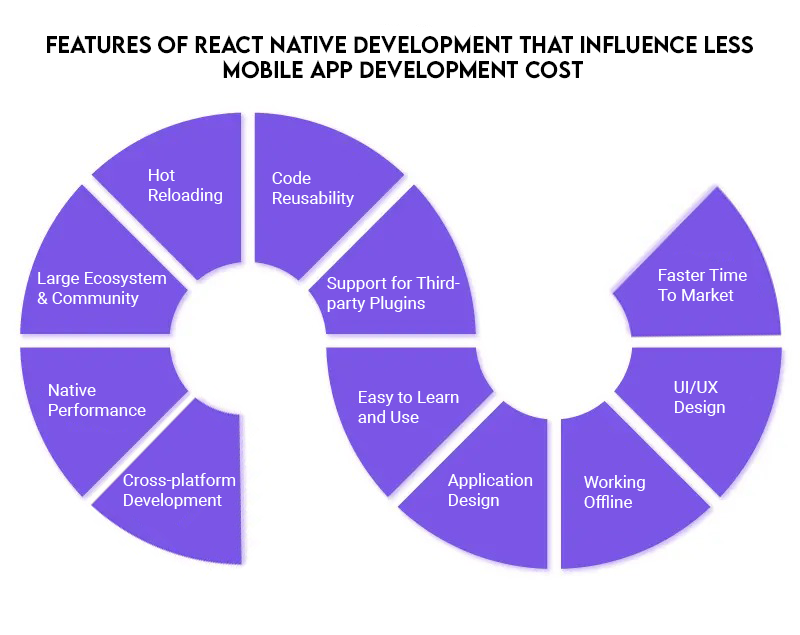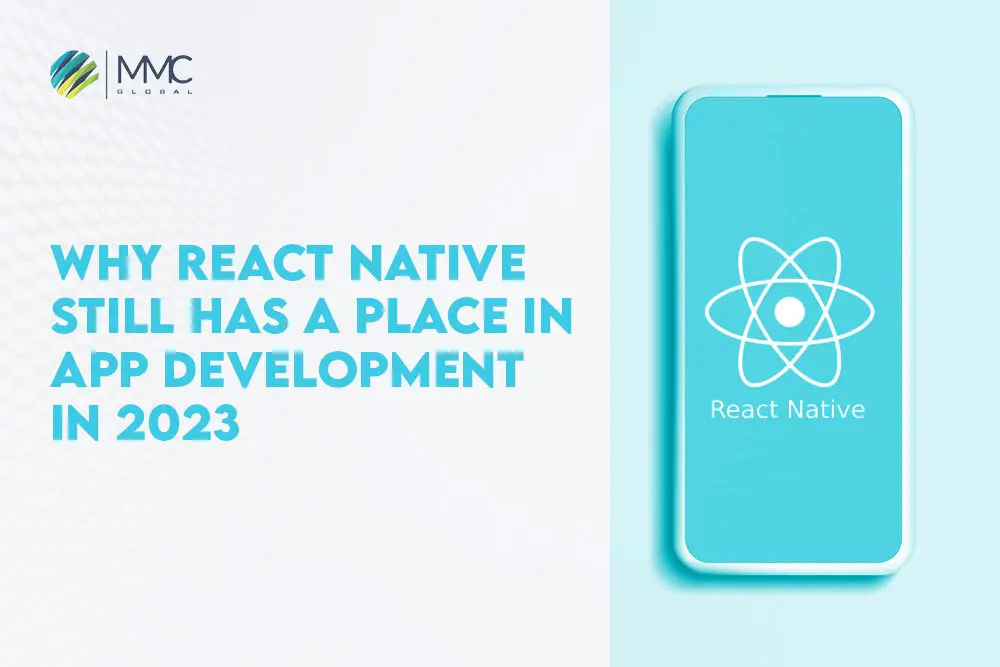Mobile apps are the most sought-after tool for today’s people, whether for shopping, ordering food, managing tasks, and so on. For businesses who are actively looking for an affordable mobile app development cost to shift their business from traditional to digital, we reveal how you can get your mobile app in your budget.
As the market for mobile application usage grows massively, the demand for new and affordable technology to develop apps is also observed to fulfill the market demand. It is high time to find technology that can reduce mobile app development cost and meet market demand without compromising the quality of functional apps.
There are two approaches to mobile app development:
- Native mobile app development
- Cross-platform mobile app development
Native mobile app development is specifically built for one platform, either Android or iOS. It means the codebase is written and only functional for a specific operating system. However, Cross-platform mobile app development refers to an app that can run on both operating systems with a single codebase. This cross-platform mobile app development approach can save the organization and development team a lot of time. The most important is that it reduces the mobile app development cost.
We can use various technologies to build cross-platform mobile app development, and React Native technology is one of the top of the list. React Native is one of the most in-demand mobile app development frameworks that can help build scalable mobile apps within budget.
Read more: Pros And Cons of Using Cross Platform Apps Through React Native
About React Native Framework
React Native is a popular open-source framework that enables developers to build cross-platform mobile applications. Facebook company is the actual producer of the React Native Framework. It is a JavaScript framework for writing real, natively rendering mobile applications. Moreover, it allows developers to write code once and deploy it on both iOS and Android platforms. It saves time and effort compared to building separate native apps for each platform.
Many companies like us onboard a dedicated React Native mobile app development team to build exceptional mobile applications that not only save money but also deliver a premium experience to the users. At MMC Global, our mobile app developers love working on React Native projects due to their faster performance, simplicity, and cross-platform functionality.
Features Of React Native Development That Influence Less Mobile App Development Cost
Here are some key features and benefits of React Native:

Cross-platform Development
React Native allows developers to write code in JavaScript and use React components to build mobile user interfaces. In fact, developers can create apps that run on both iOS and Android platforms. As a result, it maximizes code reusability and minimizes development time, ultimately reducing massive mobile app development cost.
Native Performance
React Native apps are not web apps wrapped in a native shell; instead, they compile to native code. It enables React Native apps to achieve near-native performance, providing a smooth and responsive user experience.
Read more: Top 12 React Native Features That Make Amazing Mobile Apps
Hot Reloading
One of the standout features of React Native is hot reloading. It allows developers to see the changes they make to the code in real-time without losing the current state of the app. This feature greatly speeds up the development process and improves productivity.
Large Ecosystem and Community
React Native has a large and active community of developers contributing to its ecosystem. In fact, plenty of third-party libraries, tools, and resources are available to help developers build and maintain their apps more efficiently.
Code Reusability
With React Native, developers can share a significant portion of their codebase between different platforms. As a result, developers can have greater code reusability and easier maintenance. Although platform-specific code may be required for certain features, overall code sharing can lead to faster development cycles and reduced time to market.
Support for Third-party Plugins
React Native provides support for third-party plugins, allowing developers to integrate native modules into their apps easily. This enables access to device-specific features and functionalities. In addition, the React Native apps can leverage the full capabilities of the underlying platforms.
Easy to Learn and Use
React Native builds upon React, a popular JavaScript library for building user interfaces. Developers familiar with React can quickly get started with React Native, as many of the concepts and patterns are similar.
Application Design
React Native uses a component-based architecture and provides a set of pre-built UI components that follow platform-specific design guidelines, such as Material Design for Android and Human Interface Guidelines for iOS. This allows developers to create consistent UIs across platforms using a single codebase.
Working Offline
React Native provides built-in support for offline functionality through libraries like Redux or AsyncStorage. Moreover, developers can use these libraries to manage data caching and synchronization across platforms using a single codebase. This feature of working offline reduces the mobile app development cost associated with offline support.
UI/UX Design
React Native provides a set of APIs and third-party libraries (such as React Navigation and Animated). It allows developers to implement advanced UX and UI features using JavaScript. Moreover, developers can create rich and engaging user experiences across platforms using a single codebase. It minimizes the mobile app development cost associated with UX and UI implementation.
Read more: Top-Most React Native UI Components
Faster Time To Market
By streamlining the development process and enabling code reuse across platforms, React Native helps companies bring their apps to market faster. This can be especially advantageous in competitive industries where being first to market can translate to a significant competitive advantage and increased revenue.
Wrapping Up
React Native stands out as a highly competitive technology for mobile app development, offering an array of advantages that contribute to its affordability. By enabling developers to write a single codebase for both iOS and Android platforms, React Native significantly reduces the mobile app development cost associated with the above-mentioned factors.
Its built-in support for offline functionality and a rich ecosystem of third-party libraries for advanced UX and UI features further enhance its cost-effectiveness. Ultimately, React Native empowers businesses to create high-quality mobile applications with faster time-to-market and lower development costs, making it a compelling choice for companies looking to maximize their return on investment in mobile app development.


